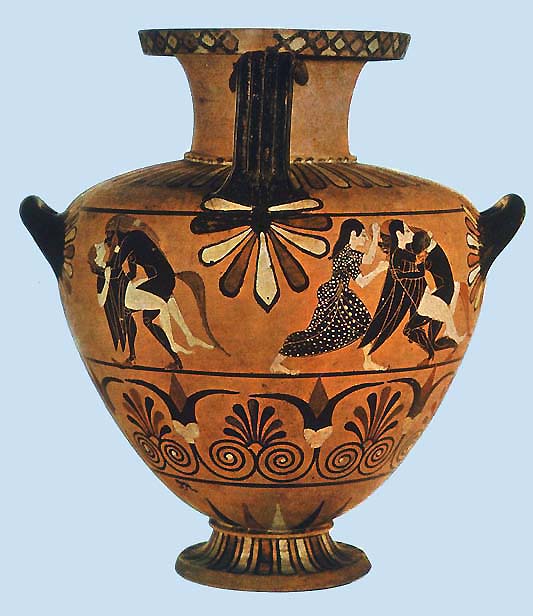Hydria from Caere (Cerveteri, Italy), dating to the VI century B.C.,
now in the Kunsthistorisches Museum, Vienna, Austria. The painting shows
some scenes with erotic intercourses between Maenads and Sileni, emphasizing
the overwhelming energy which hauled Dionysus’s followers, making
them to become part of the vital power of the cosmos. On the other hand,
Dionysus was the master of the awakening of nature, of the self-transforming
life, of vegetation which dies and is reborn again and he was associated
with seasonal ceremonies celebrating the periodic renewal which reveals
the holiness of the union between life and death. The association, in
a ritual context, between sexual intercourse and agricultural ceremonies
is justified as a participation to the generative powers of the earth
and at the same time to the reproductive process of both animals and
humans.
[Source: http://library.artstor.org/library/]


